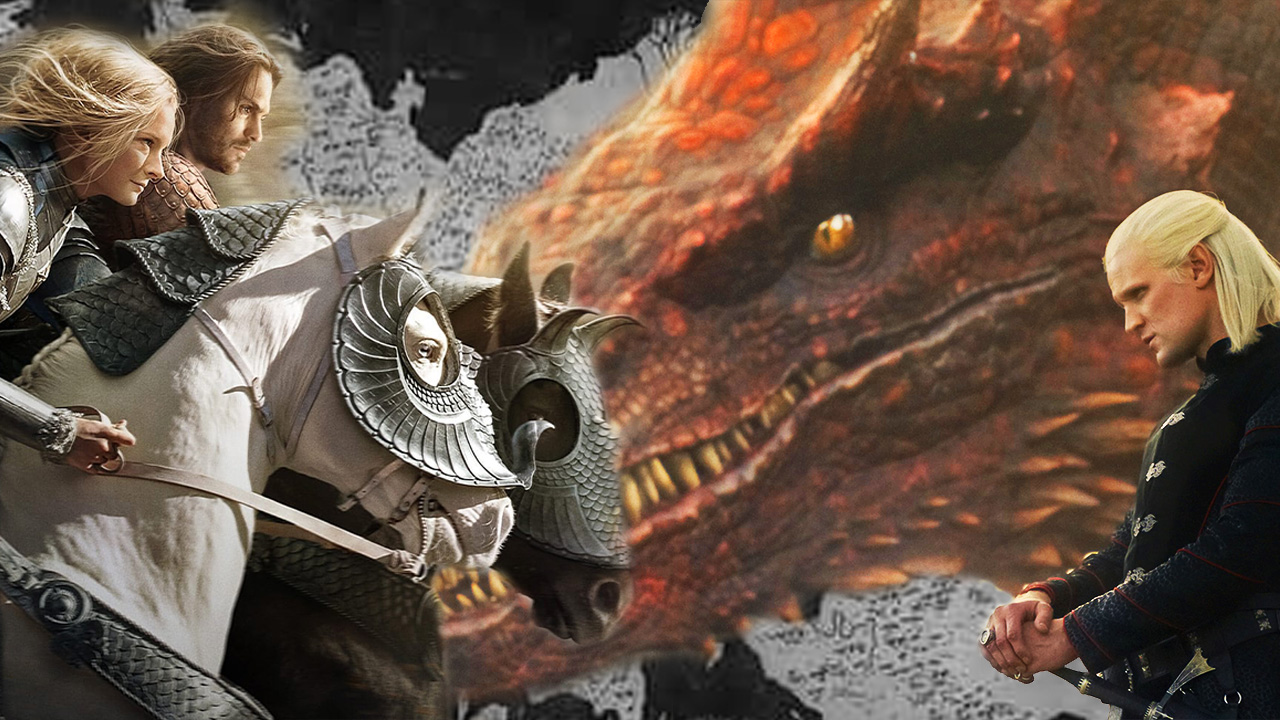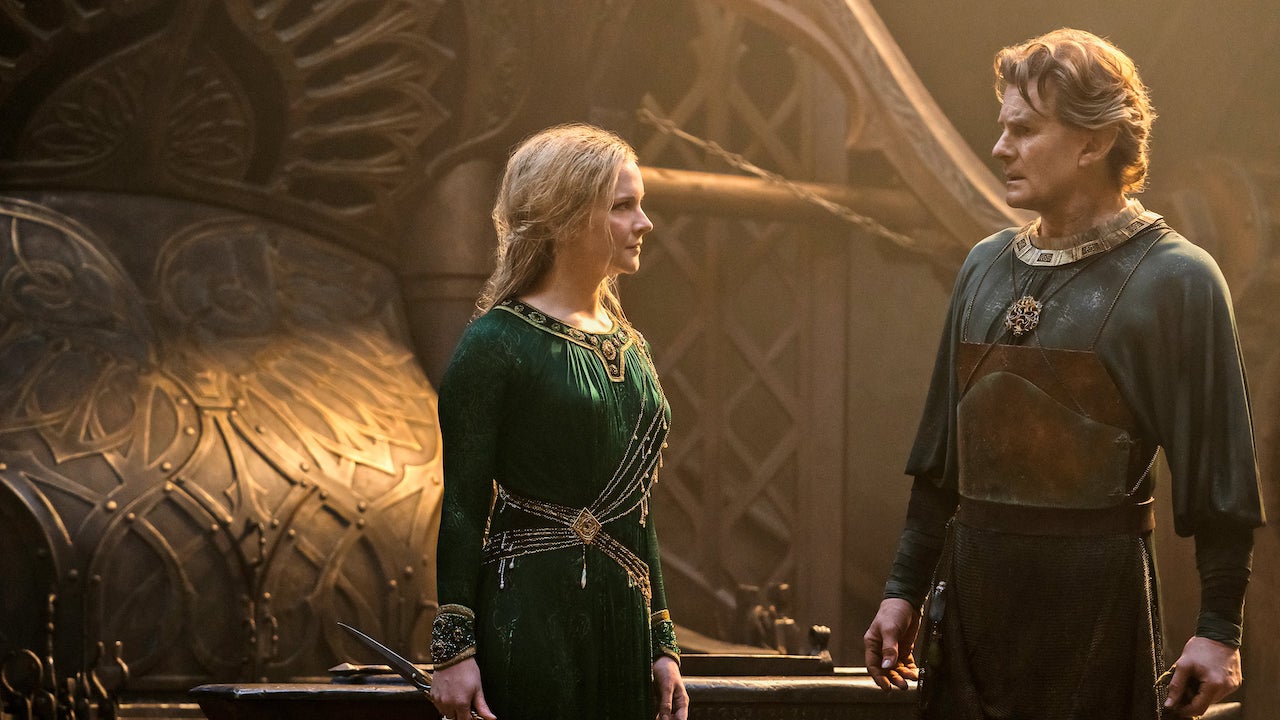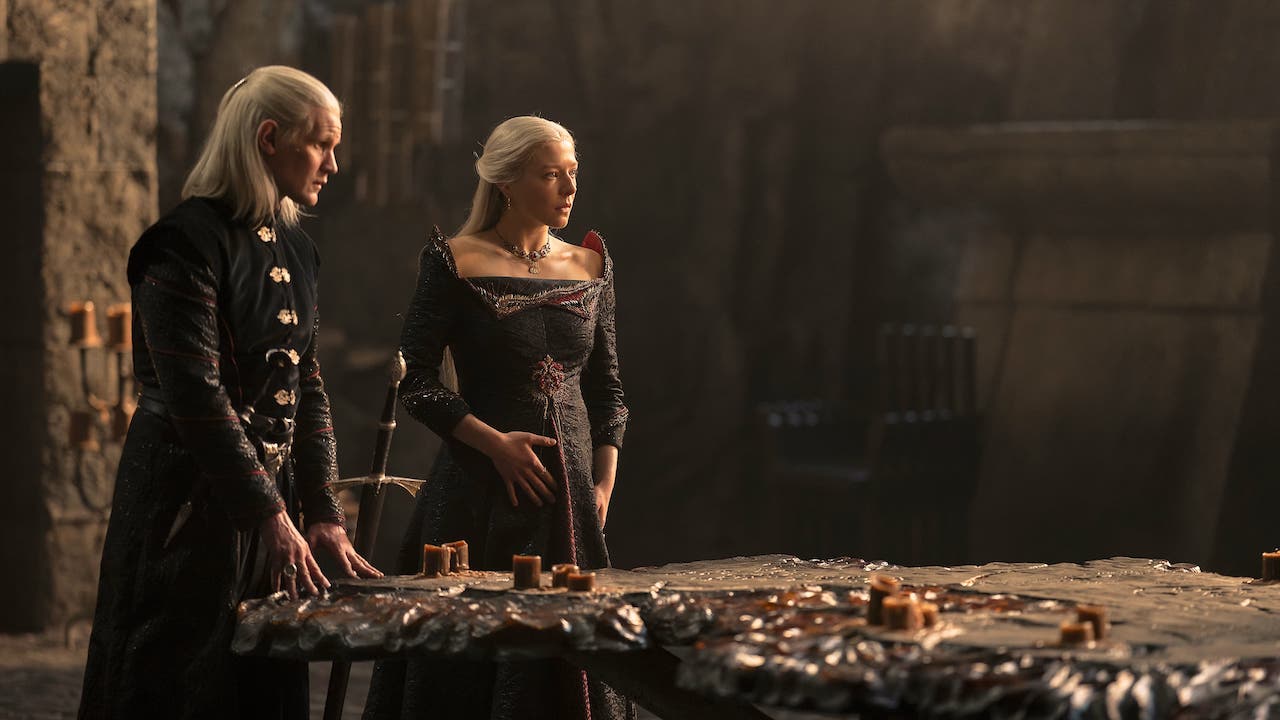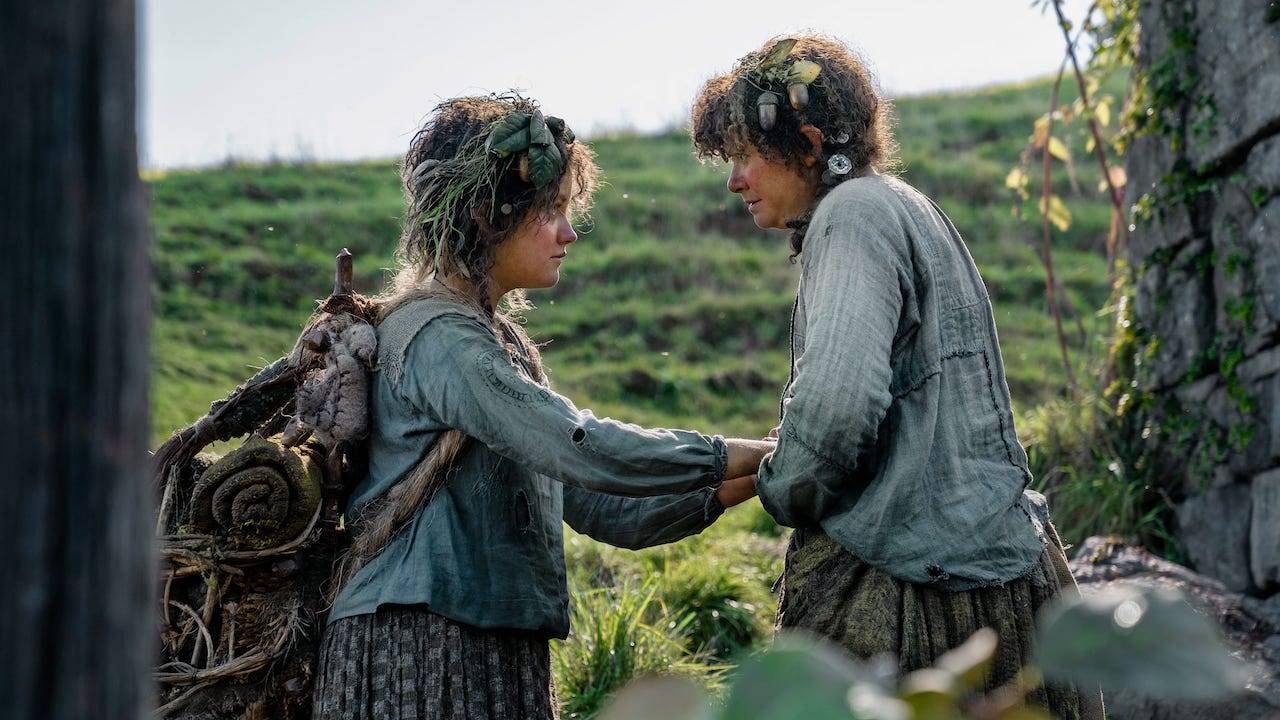House of the Dragon v Rings of Power: comparing this year’s biggest TV finales

In fierce competition on their respective streaming services, House of the Dragon and The Rings of Power both gave us epic fantasy visions of their franchise’s pasts. But which was superior? Stephen A. Russell tallies up the scores.
Whether you’re into wizards, orcs and elves, or prefer your fantasy epics light on the ol’ magic stuff (barring a few hulking dragons), there’s been plenty to sink your teeth into these last couple of months.
First, there was the return to the wicked ways of Westeros with Game of Thrones prequel House of the Dragon, set around 200 years before Dany and Jon’s dubious dating game. Then we were swept up on the journey back to Middle Earth, a few thousand years before Peter Jackson’s The Lord of the Rings movies, to witness the origins of The Rings of Power. Excitement abounded!
Now that two of the biggest shows of the year have drawn their opening chapters to a close, we take a look at which won the war for most captivating return—and the best finale.

Both franchises needed to win back viewers
Long before either epic made its way to our screens, legions of fans swore undying allegiance to the soaring stories of fantasy authors J.R.R. Tolkien and George R.R. Martin. But book lovers and fresh faces alike can be a fickle bunch. Critics and the cinemagoing public adored Jackson’s first foray into Tolkien’s world, but shunned the silly stretching of slim tome The Hobbit. Many felt that Thrones stuffed up its final seasons. So both shows bowed on the back foot. How best to win them back?
Rings promised sweeping scope, leaping across the Sundering Seas from Valinor to Middle Earth and on to Numenor to give us a jaw-dropping look at nooks of Tolkien’s world we’d never seen before. We met the snooty armies of an ill-fated island kingdom, and the plucky harfoots, who are early cousins of the Shire-bound hobbits.
We dropped into the mines of Moria to meet the dwarves, pre-Balrog attack, headed to multiple elven dwellings and stopped over with lowly humans residing in a soon-to-be devalued postcode. With all the money Jeff Bezos threw at these realms, it was easy to be awed by the majestic scale of it all.
HOTD made the odd decision to eschew all of Thrones‘ intriguing, expansive world-building in favour of a much smaller story that played out mostly within the walls of the Red Keep. Detailing the fall of dragon-riding House Targaryen, it largely ignored the other kingdoms and their political intrigues, exacerbating the show’s weaknesses rather than playing to its strengths.
But a lot can change in the course of an opening season.

Both shows took their time
Pacing-wise, neither show was in a massive hurry to get where it was going. But that’s not necessarily bad in fantasy epics that pride themselves on leaning into their wandering ways. By episode six, Rings blew expectations sky high with a devastating disaster movie episode that held a volcanic candle to Thrones’ hotly anticipated penultimate ep doozies.
A thrilling link was made to the future temptation of Morfydd Clark’s Galadriel, and Australian actor Markella Kavenagh’s harfoot Nori came into her own. We got a tantalising tease as to who Daniel Weyman’s wizardly stranger truly is, plus the big reveal of the secret identity of a sulking Sauron (even if the latter was blindingly obvious).
While Rings held tight to its characters, HOTD oddly introduced time jumps to speed up the plot, ageing overnight the various sprogs in line for the Iron Throne while others, like Doctor Who-gone-bad Matt Smith as the dastardly Daemon, don’t age a day.
This made it harder to care for anyone in particular when they could be played by a different actor the following week. That was particularly difficult to stomach when HOTD ditched magnificent Milly Alcock and Emily Carey in favour of Emma D’Arcy and Olivia Cooke as frenemies Rhaenyra Targaryen and Alicent Hightower.

So, which series ended better?
While both have been a tad sluggish, if astounding to look at, HOTD slumped into its final act by dropping the dullest episode nine, right down to an inexplicably pulled punch in the final shot—by Eve Best’s Princess Rhaenys. Despite this misstep, it has the upper hand on the writing front, drawing directly from the intricately detailed histories of Martin’s books.
Rings had less to work with. While Tolkien’s appendices detail shining slivers of the Second Age of Middle Earth, there are plenty of gaps to fill. The showrunners didn’t always make the brightest moves, with occasionally clunky dialogue and plotting. A hilariously rushed denouement also stole some thunder from Sauron’s diabolical plan to forge the One Ring. And yet, as with all great final episodes, it threw our players across the board, setting up a mighty battle to come.
Finally setting a queen against a king (and his mum), HOTD saved the best to last with a spectacular episode defining enemy lines, with a call to arms that will bring missing kingdoms from Winterfell to the Aerie back into the game.
Interestingly, analysis of the frenetic Twitter response to both finales, as conducted by research company Wettfreunde.net, found that Rings of Power fans were the happiest, with 44.7% positive tweets, compared to 32.9% for House of the Dragon. Both prompted around 18% negative tweets.
In the end, Rings felt much richer along the way, with Dragon often losing sight of where it was heading. But it was Dragon that snatched glory from the jaws of near defeat, with the most awe-inspiring finale.
















